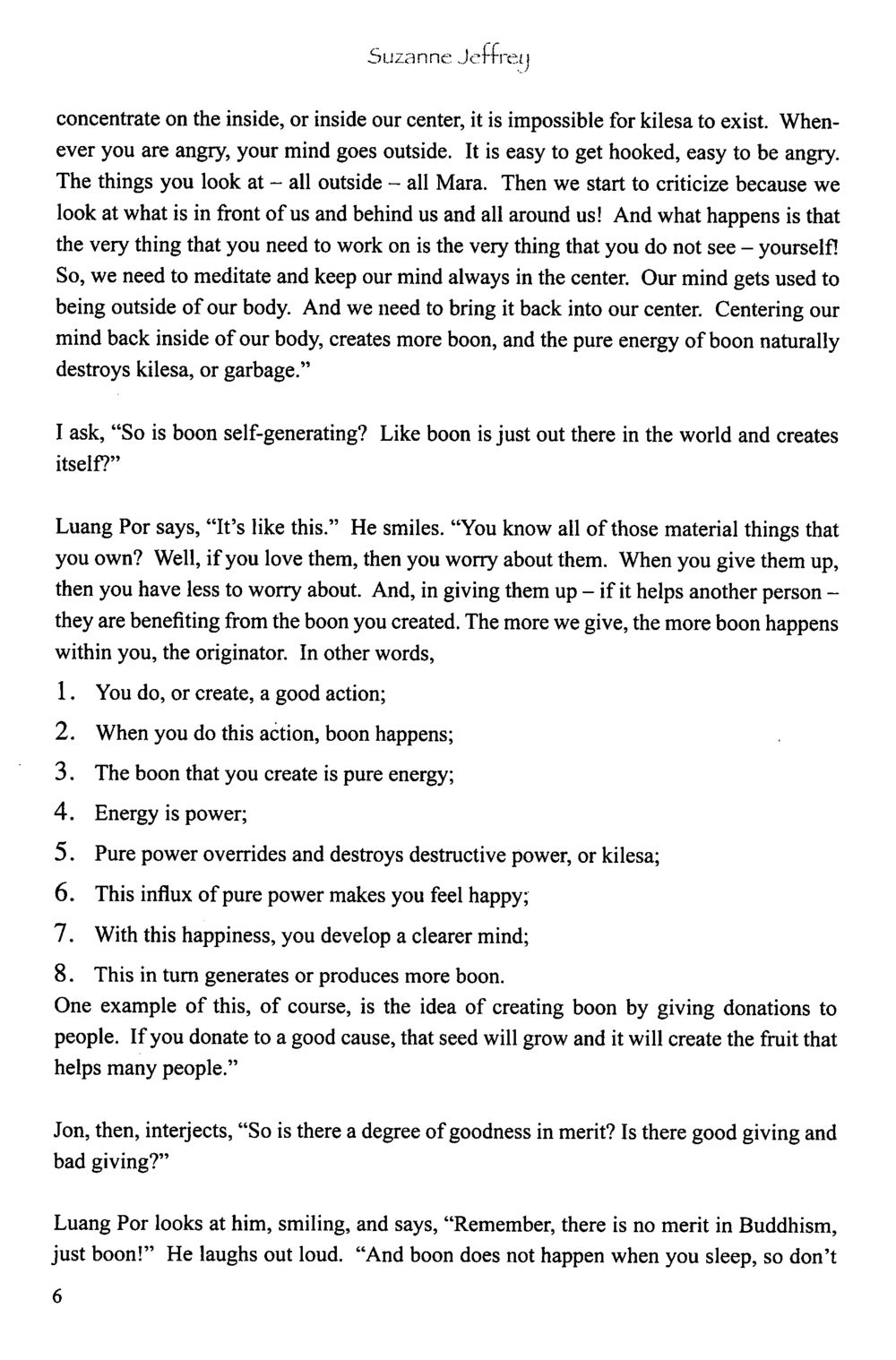Understanding Boon and Kilesa in Meditation : หน้า 15/164
The Meeting with a Dhamma Master : หน้า 15/164 Explore the concepts of boon, kilesa, and the importance of centering the mind in meditation. Learn how giving and pure energy can transform your mindset and create happiness.
0 ครั้ง

สรุปเนื้อหา
In this insightful discussion on meditation, Luang Por explains how the mind often drifts outside our center, leading to anger and distraction from self-awareness. By focusing inward and engaging in good actions, or boon, one can create pure energy that counters kilesa, which refers to destructive tendencies. This process is self-generating; as we give and help others, we cultivate more boon within ourselves, leading to happiness and a clearer mindset. The importance of awareness and centering oneself in meditation is emphasized, illustrating how external attachments can detract from our inner peace and understanding. By understanding and practicing these principles, individuals can foster a positive cycle of goodness both within and around them.
หัวข้อประเด็น
-Boon and Kilesa
-Centering the Mind
-Importance of Good Actions
-Transformation through Giving
-Buddhism and Merit
-Meditation Practice
ข้อความต้นฉบับในหน้า
หน้าหนังสือทั้งหมด




































































































































































